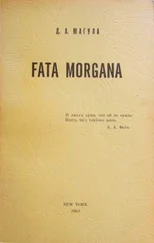— FALL 2002
It was only the other day this story came to my mind. I was driving down the northern highway; the sun, a ball of fire boring a hole into the pale sky, was crushing everything with its light and heat, and, overcome with torpor beneath this vast summer sky, I was floating unawares on the verge of sleep. I didn’t know where I was going; to tell the truth, I didn’t really know if I was driving, or if, stretched out in this vast heat on the sheetless rectangle of my mattress, I was dreaming that I was driving, or even if I was having this sleeping-driver dream in the midst of driving, my hands inert on the black leather hoop of the steering wheel. Sleeping, I said to myself: one should write about this and about nothing else, not about people, not about me, not about absence or about presence, not about life or about death, not about things seen or heard, not about love, not about time. Already, it had taken shape. Obeying a sign shaped like a triangle, I left the highway and headed for the sea. Parking lots followed one another, monotonous, crowded with cars baking in the sun. Finally I noticed an out-of-the-way trail and took it. It led to a little stretch of beach, none too clean, but almost empty: only a few people had spread out the colored squares of their towels and were lazing about, naked and ruddy, exposed to the rage of the sun or else half-hidden under the laughable disks of little parasols. This suited me, and I too undressed and went into the water. It was warm and soft, and instead of waking me up, this monotonous, lapping expanse, swollen with a huge repetitious murmur, lulled me to sleep even more, enveloping my dormant body in the sinuous play of its forms and sounds. Naked, I floated on my back, my head borne by the waves, my eyes blind beneath the triumphant sky, pierced at its zenith by the bleak insatiable fire of the sun, and I dreamed I was swimming out to sea, calmly, with patience and rhythm, pitting without exhausting it the strength of my muscles against the inertia of this immense, shapeless, sly mass agitated by a placid, continuous violence; from time to time, my head went under water, and, with eyes closed against the biting salt, I lost all notion of space, I found myself tossed about, overcome, a dull anguish weighing down my limbs that seemed to move like seaweed, with no more force or power, each limb separate from the others and incapable of rediscovering a whole that might have served to give sense and direction to this movement; in my lungs, the air was turning sour, sucking in my ribs; then a contrary surge of the waves would hurl me back to the sky, my mouth open in a circle just above the waves, whipped by seaspray, and I resumed my regular movements, forcing my way through this endless waste. This lasted a long time, until I heard a voice, a young woman with a loud, tinkling laugh: “No, silly, you’re not swimming, you’re dreaming you’re swimming. Do you even know how to swim?”—“Of course I do,” I wanted to protest: but I opened my eyes in vain, I saw no one.
* * *
That same day, it comes back to me now, some friends had suggested celebrating my birthday; but I couldn’t remember the date, or even the sign under which I was born. I was made that way: neither sad nor merry, neither open nor private, curious about everything but not interested in anything; I knew many people, but wasn’t attached to anyone. It was not my fault; the blame falls on those who had reared me, or on my depraved nature, or else on a blow to the head I got in the fog, one fall night, on a high, dark mountain.
* * *
Scarcely had I gotten back to town than I met an acquaintance. He was coming down a broad staircase at the end of an empty rectangular esplanade, his pale suit shone in the sun; to see him better, I shaded my eyes with my hand, and he burst out laughing, exposing between his garnet lips two rows of regular, gleaming little teeth, all the while holding out his hand and taking me by the shoulder: “You don’t remember me? We’ve been friends for a long time, though.” He began chatting with me casually, about everything and nothing. It was a little surprising: I thought he had been dead for years. “Not at all! Not so far as I know, at least.” We lingered a while on these steps, talking some more; he still held my shoulder in a friendly grip, his eyes laughing. I laughed too and shook his hand, before heading home.
* * *
Opening the door, I saw myself in the mirror, a large round mirror leaning against the wall, reflecting the horizontal rectangle of the striped mattress, it too lying on the floor, and the vertical rectangle of the open door, red on the outside, white on the inside. In the mirror, the face framed by the jambs of this door was looking at me, smiling calmly; I found it somewhat beautiful, but of a vague, undefined, blurred beauty. Night was falling, I pressed the switch: light leapt out, harsh and bright, from a bare lightbulb hanging over the mattress, reflected in the round mirror too. I had bought this mirror, its glass all pockmarked and partially tarnished, from a second-hand dealer, and I liked it immensely. It must have had a defect that I hadn’t noticed; as time passed, a crack stretched out mysteriously from one edge; then another fissure began to branch off from the first, forming a little V at the bottom of the mirror, just like a woman’s pubis; finally, a long horizontal line came to cross this V. The mirror kept staring at me, impassive, a mute cyclops’s glum eye. Sometimes I would lay the mirror flat on the mattress and crouch along its edge, leaning on my hands. Depending on the angle, I would then see my features surprisingly abstract and very far away, or else just the lightbulb hanging on the ceiling, or else nothing, nothing at all, as if I were gazing not at a mirror but at a gaping, luminous pit, slightly purplish, carved into my bed, into which I could have tumbled head-first, to disappear forever. Sometimes too, I would put on female underclothes — stockings, dainty black lace panties, a padded bra — at times with a thin clinging dress, at others not, and for a long time I would examine this beautiful feminine form, elegant, aristocratic, its musculature subtle and well-defined, its skin white, beneath which snaked thick veins swollen with blood, losing in this way in the image all notion of time and place, of my person or of my thoughts.That a few tawdry rags bought in a hurry at the supermarket were enough to make a woman, a real image of a woman — that is what filled me with wonder, it was a spell, pure magic. Nothing could come to disturb this happiness. One time, though, a curious thing happened: a child, in the corner of my bedroom, said softly but clearly: “You shouldn’t be doing that.” I didn’t know who he was, or what he was doing there, but I replied kindly: “And why not?”—“I would prefer that you didn’t do it.” I gazed at him, smiling tenderly. In the mirror’s disk, the gossamer lace followed the arched loins of the figure reflected there, plunged between its buttocks; lower down, another band circled its thigh. I was still looking at the blond child, motionless and stubborn in his corner, his fists clenched alongside his legs; finally, without taking my eyes off him, I slowly stretched my hand out to the switch, pressed it, and everything, child and feminine form, circles and rectangles, vanished into the dark.
* * *
I also liked to go out in the street like that, with this lace underwear beneath my clothes: it produced a strange sensation in me — light and floating, as if both sexes at once were strolling in my body through the city. Sitting with a cold drink at a café terrace on a public square, I would examine the women passing by, think about their clothes, as light and airy as my feelings, about what they were wearing underneath, lace or fine fabrics, which they often showed glimpses of: for them, these delicate layers on their bodies added nothing, took away nothing, they were women in all simplicity, naked or clothed, with or without artifice, even coarsely dressed, or dressed like men, they remained women; these pieces of fabric, so maddening to me, were as natural to them as their own skin, it was just the texture of their lives, a pleasant and caressing thing perhaps, but one they could do without: at the very most, sometimes, pleasure might seize them by the throat as they slowly removed these garments in front of a man’s avid desire. As for me, they transformed me completely, they made me a free oscillation, around which my desires floated freely, coming to bear on everything and nothing, settling only to take off and settle on their opposite, before coming back or going elsewhere, and I no longer knew if I was man or woman, unless someone told me. This made me astonishingly mobile and I loved that. But it was also possible that this was all a dream, like that other dream in which I was trying to decipher notes I had made when I awoke from yet a third dream, a long wonderful story, just like this one. I could see the words, a few doodles hastily sketched out, I was trying to reconstruct this lost dream, which fled from me imperceptibly but steadily, like sand trickling from one cone of the hourglass to the other; it escaped me just as this story is escaping me. To tell the truth, I never really knew if I was asleep or awake, this too someone had to come and tell me. But reality was never lacking in people ready to determine it, however arbitrarily, like that friend, the one on the stairs who should have been dead, but who was shaking my shoulder, laughing: “Hey there, are you sleeping?” He sat down opposite me and ordered, drank, ordered another. “I have something for you,” he said, “I know you, you’re going to like it.” He took out a disk from his pocket and put it on the round table. “What is it?”—“You’ll see, you’ll see.” Already he was getting up and walking off without paying; that made me glad, I was happy for him for his trust, his freedom, his lightness. The disk, silvery in a thin, transparent square case, remained on the table, I forgot it when I left; I’d only taken a few steps before the waitress caught me by the sleeve to give it back to me. She had a beautiful smile, brown, silky skin: she too wore her body with ease, as if it weren’t a miracle.
Читать дальше











